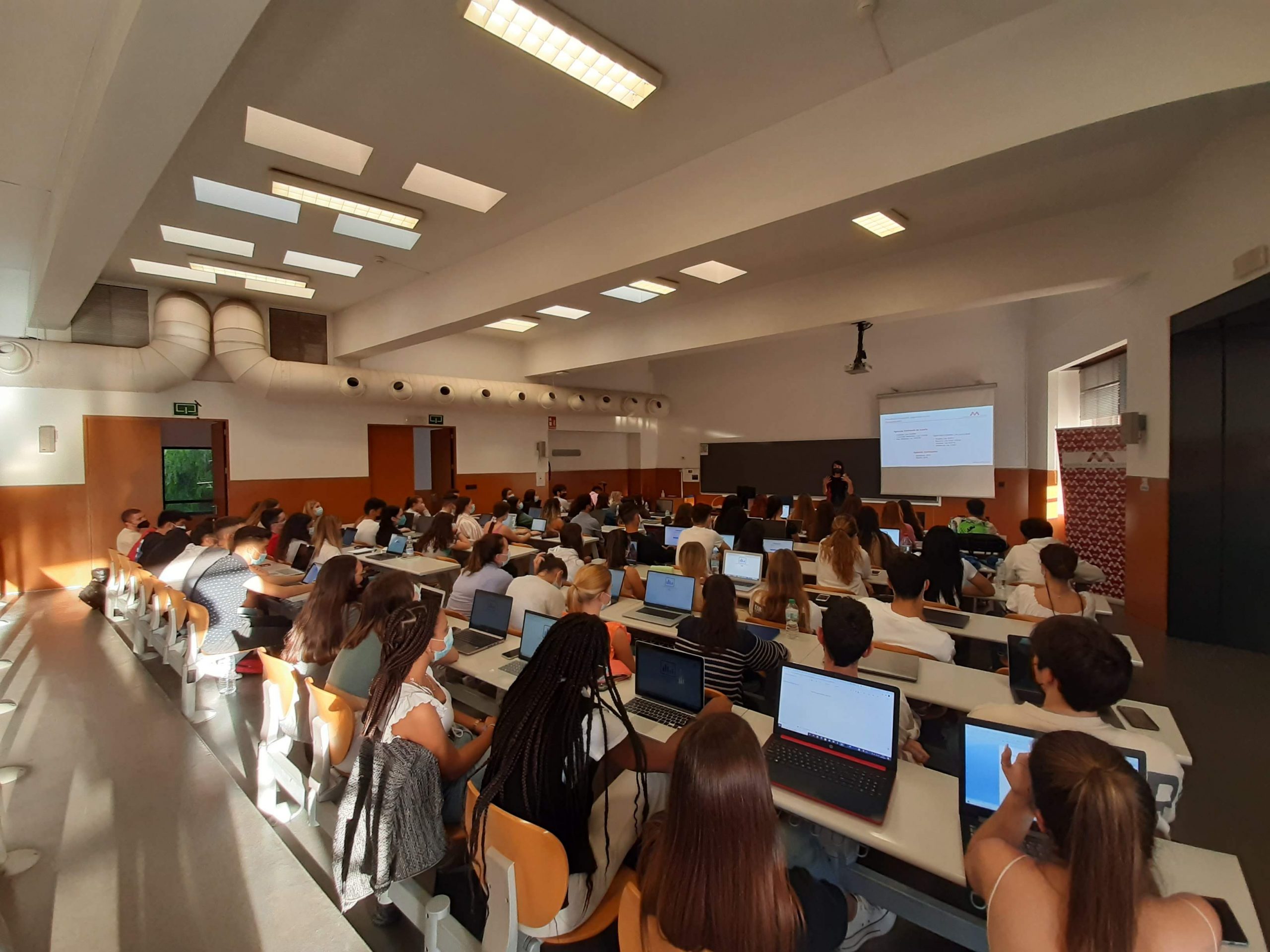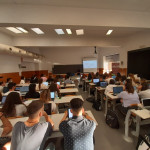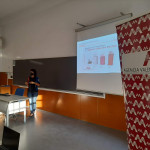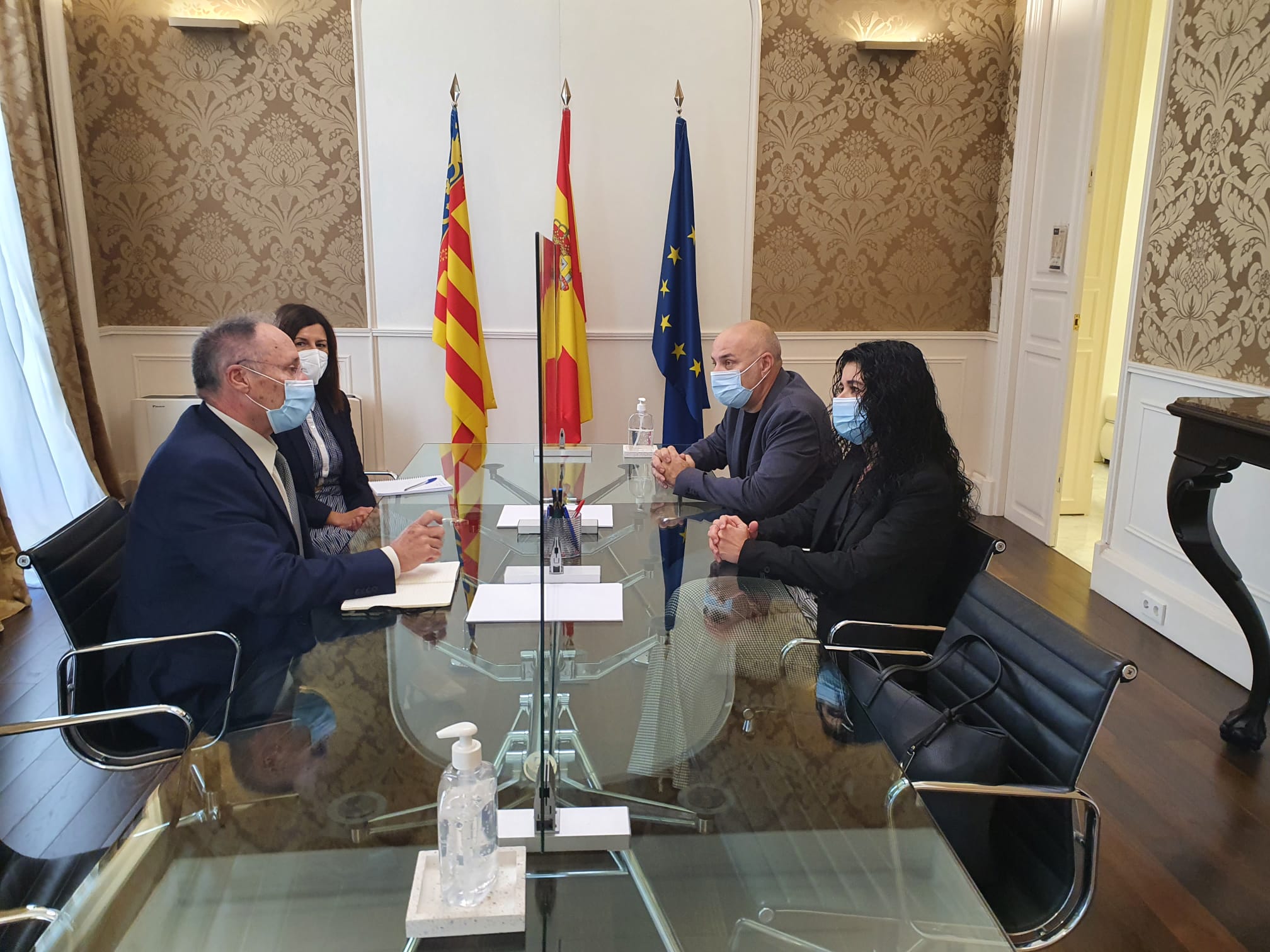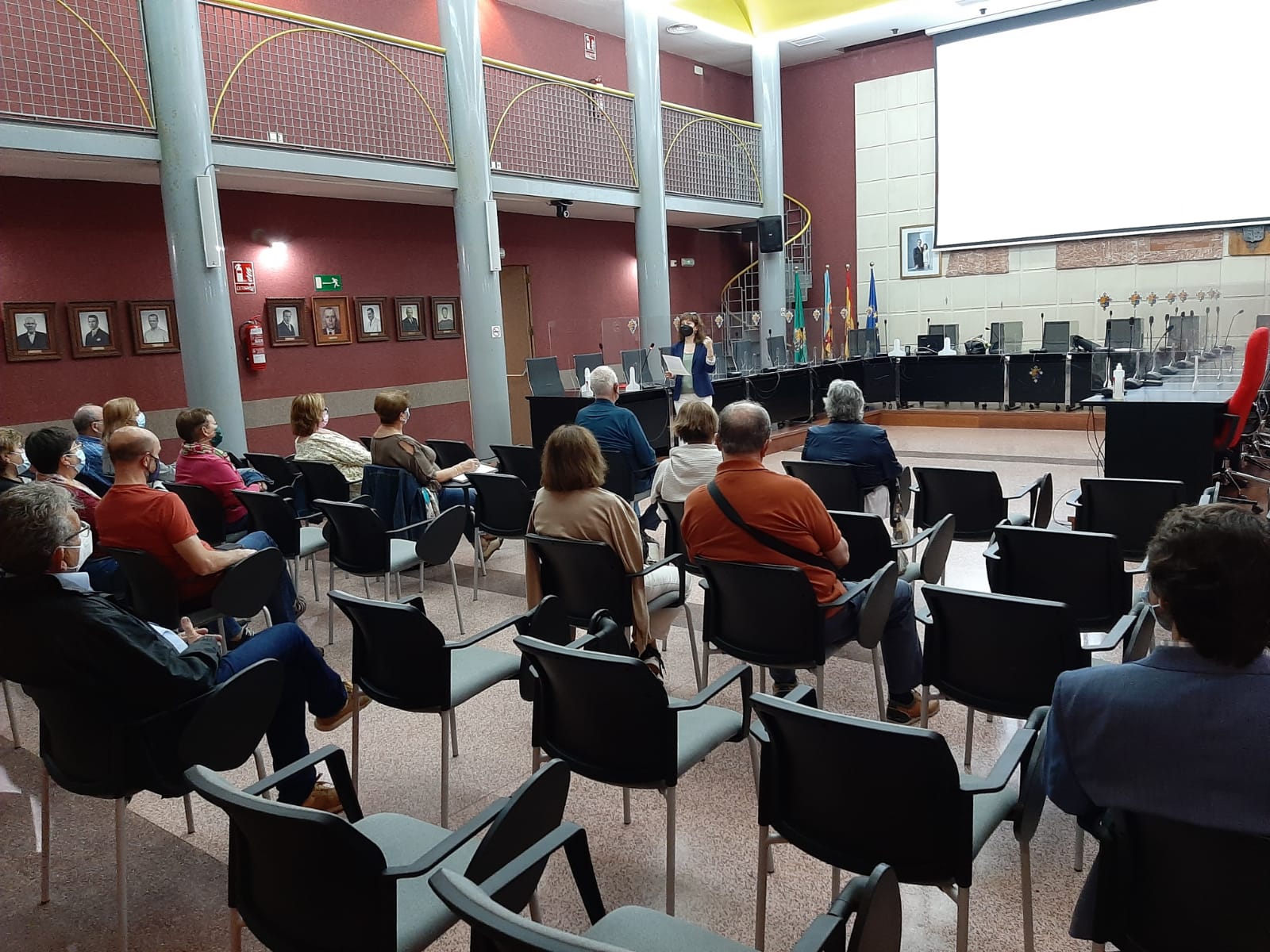The learning experience of the Valencian Anti-Fraud Agency took place on October 20 within the subject of History of Law of the Law degree (Group 4) of the University of Alicante.
After having seen, in a previous session, the documentary “Corruption: harmful organism”, the debate session was held with the presence of a training technique in the university classroom.
Responding to the doubts and questions raised by university students and showing the functions performed by the AVAF were the common thread of the second session.
Knowing the process of investigating complaints that reach the Agency, how whistleblowers are protected from corruption in the AVAF, as well as the role of national authorities in the control of legality in municipalities, were some of the questions formulated by university students.
The need for a national anti-corruption agency and interest in the functions of the AVAF were some of the recurring issues in the classroom, along with the necessary independence of the offices and agencies that focus their work on prevention, detection and prosecution. of corruption.
The activity has been organized in collaboration with the Professor of Law History, Jorge Payà from the University of Alicante, who actively motivated the students to discuss the need for a culture of public integrity and rejection of fraud and corruption.
The very high participation and interest shown by the class about the existing tools to prevent corruption and its effects have been manifested in a very positive assessment of the training experience by the students.
The learning experience promoted by the AVAF has allowed the debate on the importance of public integrity and the effects of corruption to take place inside and outside the classroom, taking into account that the students felt highly impacted by the reality shown in the documentary and for the vital situations experienced by the alerting persons.
If you are a university, Secondary or Baccalaureate teacher and you are interested in the training activity “Docuforum: Corruption, harmful organism” being carried out in your subject, do not hesitate to contact the Training Service of the Valencian Anti-Fraud Agency through from formacion@antifraucv.es


